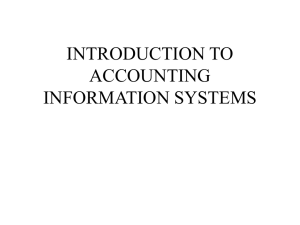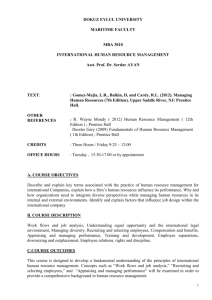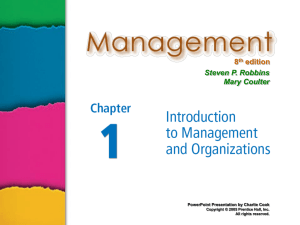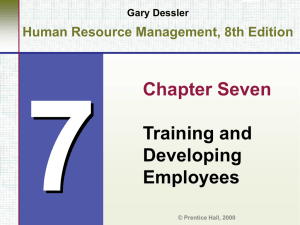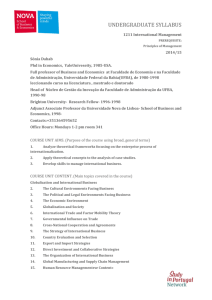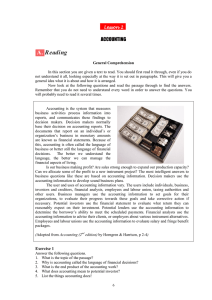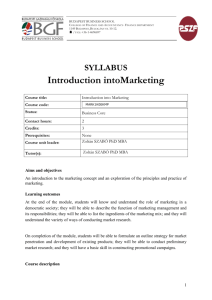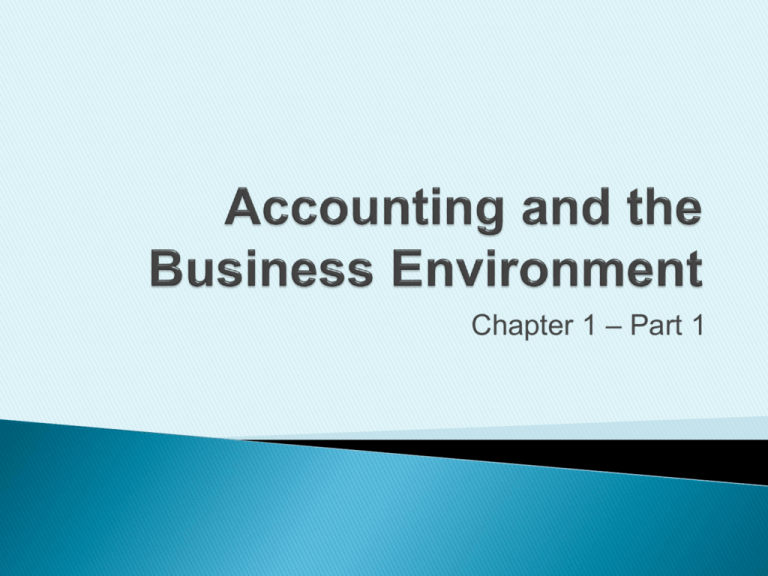
Chapter 1 – Part 1
Define accounting vocabulary
1.
2.
3.
• Measures business activity
• Processes data into reports
• Communicates results to decision
makers
Copyright (c) 2009 Prentice Hall. All rights reserved.
3
End product of accounting process
Report on business in monetary terms
Copyright (c) 2009 Prentice Hall. All rights reserved.
4
Define the users of financial information
Accounting — An Information Process
Identification
of Users
6
Users of Accounting Information
Financial Accounting
EXTERNAL USERS
•
•
•
•
•
investors
creditors
regulators
customers
competitors
Managerial Accounting
INTERNAL USERS
owners
managers
employees
7
Accounting — An Information Process
Identification
of Users
User
Information
Needs
8
Accounting — An Information Process
Identification
of Users
User
Information
Needs
Accounting
System
9
Accounting — An Information Process
Identification
of Users
User
Information
Needs
Economic Data
and Activities
Accounting
System
10
Accounting — An Information Process
Identification
of Users
User
Information
Needs
Economic Data
and Activities
Accounting
System
Reports
11
Accounting — An Information Process
Identification
of Users
User
Information
Needs
Economic Data
and Activities
Accounting
System
Reports
User
Decisions
12
Individuals
Businesses
Creditors
Investors
Taxing
Authorities
Copyright (c) 2009 Prentice Hall. All rights reserved.
13
Financial Accounting
Provides information
for external decision
makers
◦ Investors
◦ Creditors
◦ Taxing authorities
Managerial Accounting
Provides information
for internal decision
makers
◦ Managers
◦ Individual business
owners
Copyright (c) 2009 Prentice Hall. All rights reserved.
14
Describe the accounting profession and the
organizations that govern it
Lucrative career with many opportunities
Certified Public Accountants (CPAs)
◦ Pass qualifying exam
◦ Meet education and/or experience requirements
Public Accounting –
CPA Firms
Private Accounting –
Business & Other
Organizations
Copyright (c) 2009 Prentice Hall. All rights reserved.
16
Users of Accounting Information
Financial Accounting
EXTERNAL USERS
•
•
•
•
•
investors
creditors
regulators
customers
competitors
17
Generally Accepted Accounting Principles established rules, principles, and concepts
Formulated by Financial Accounting Standards
Board (FASB)
18
FASB
• Financial Accounting Standards Board
• Private organization that makes accounting
standards
Copyright (c) 2009 Prentice Hall. All rights reserved.
19
Identify the different types of business
organizations
Proprietorships
Partnerships
Corporations
Limited
Liability
Companies
Copyright (c) 2009 Prentice Hall. All rights reserved.
21

